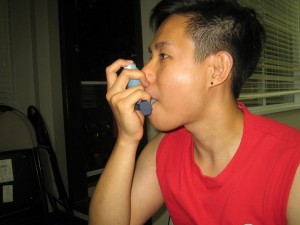Skin asthma is a skin disorder that causes inflammation, redness and itchy rashes. It may cause by a hypersensitive skin to allergy. It can manifest or show roughness, dryness, and change in skin color.
Skin asthma is a continuing skin condition. It needs consistent regular treatment. Refer to a dermatologist or a qualified skin specialist when the condition persists or symptoms are accompanied with fever and pain.
If you have skin asthma, your airways are highly sensitive to some allergens. The immune system overreacts when they get into your body. The muscles that surround your airways tighten. The airways become swollen and over time are flooded with thick mucus.
If you have allergic asthma, symptoms are generally the same. You’re likely to:
- Cough
- Wheeze
- Be short of breath
- Breathe quickly
- Feel your chest get tight
Skin asthma’s causes are still unknown, but the causes include environment and genetic determinants. It may worsen due to certain triggers. Stress, changes in temperature, contact with chemicals, hair dyes, perfumes, detergents soaps and excess contact with water just like in swimming pools and beaches are just some of the reasons that can trigger skin asthma.

The symptoms of skin asthma include:
- Dry skin
- Bumpy skin on the back of the arms and front thighs
- Changes in skin colour
- Ear discharge
- Blisters
- Redness of the skin
- Crusting
- Thickened skin after constant scratching
- Intense itching
Treatments of Skin Asthma
Through physical examination, skin asthma can be detected. Analysis of the skin analytically can be done. Personal and family history is being traced, so that proper treatment can be given. Skin allergy test can be done.
Antihistamines are big help for those who have skin asthma. It can relieve itchiness caused by skin inflammation. Some of the popular over the counter antihistamines include:
- Loratadine
- Cetrizine
- Fexofenadine
Home Remedies
We can prevent skin asthma at home. Most effective home care for skin asthma is as follows:
- Moisturize the skin regularly.
- Refrain from scratching the skin or affected area. The itch can be reduced by the application of topical or prescribed creams.
- Reduce contact with water.
- Switch to mild body cleansers and washes instead of harsh soaps.
- Always use hypoallergenic creams, make up, cleansers and detergents.
- Try and avoid dusty and dirty spaces as it may trigger asthma.
- Avoid certain foods such as eggs.
- Keep stress at bay.
- Make sure to get adequate sleep.
- Daily consumption of multivitamins such as anti-inflammatory omega 3.
- Exercise is a great way to reduce stress.
